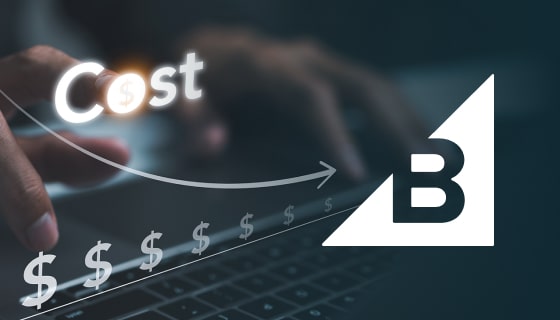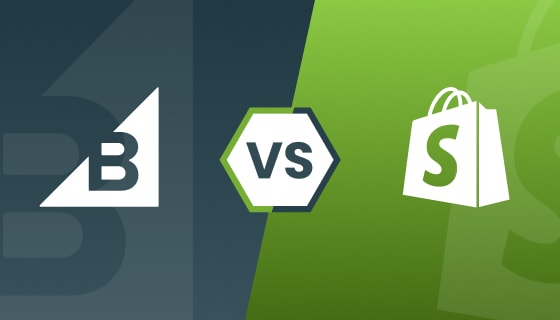Introduction
In the ever-evolving landscape of commerce, where customer experience reigns supreme, secure and seamless payment processing has become an indispensable battleground for businesses. Payment gateways have emerged as the knight in shining armor, not just for the well-established eCommerce giants but for a surprisingly wide range of industries. By acting as a secure bridge between customers and businesses, payment gateways empower transactions to flow smoothly, fostering trust and convenience – the cornerstones of a thriving commercial ecosystem.
From the bustling world of online retail to service-oriented brick-and-mortar establishments, payment gateways offer a multitude of benefits that can significantly enhance a business’s bottom line, improve operational efficiency, and, ultimately, create a loyal customer base. Let’s embark on a journey to explore the multifaceted ways in which payment gateways empower businesses across diverse sectors.
How Payment Gateways Simplify Transactions?
eCommerce holds a prominent position in the digital landscape, offering lucrative functions and beneficial features that have significantly impacted the business arena. One notable component is the payment gateway, although some merchants opt not to utilize this feature when selling their products. Before delving into the advantages of employing a payment gateway, let’s revisit a nostalgic anecdote.
Recall the days of our youth when stationery held a special place in our hearts. Acquiring more meant walking to the nearest store and parting with our meager five pennies for any enticing item. Fast forward to the present, and stationery is just a click away through platforms like GPay, Amazon Pay, and others. Today, carrying cash while shopping, be it for small necessities or large appliances, is a rare occurrence. Reflecting on this evolution from childhood memories to present realities, it becomes evident that our financial transactions are more secure now.
Setting aside these nostalgic reflections, let’s explore the utility of payment gateways in both the eCommerce and non-eCommerce sectors.
Understanding what a payment gateway is and how it has shaped the eCommerce system is crucial. This knowledge will pave the way for comprehending the answers to frequently asked questions like:
- Is it secure?
- Should we consider it for our store?
- What is the policy of the payment method?
- How do we integrate it with our technology platform?
- What Are Payment Gateways and Their Roles?
When making online payments, we often encounter a secure payment gateway that facilitates the transaction process. Popular eCommerce platforms like Amazon utilize trusted gateways such as Razorpay. In essence, these gateways act as intermediaries responsible for authenticating credit cards and executing successful transactions through card processors on behalf of the merchants.
This third-party involvement is crucial, as well as managing the details of the transaction and ensuring a secure process. Whether credit/debit cards, eChecks, or digital currencies like Bitcoin, all transactions flow through the payment gateway. Sellers are likely familiar with the Point of Sale (POS), and payment gateways operate on a similar principle, redirecting users back to the merchant’s platform after handling the transaction details. Simply put, without a payment gateway, sellers would be unable to charge customers for their products or services.
How Does The Payment Gateway Work?
When customers visit the website, they typically add products to their cart and proceed to the checkout page. At this stage, they provide the necessary details, including their card information, and await the system to complete the transaction. Within a matter of seconds, the payment is deducted from their account and credited to the merchant’s account, with several background processes taking place.
Initially, the system gathers all order information, encrypting it for security, before submitting it to the merchant in the first step. Subsequently, the data is transmitted to the merchant’s processor in the second step, allowing them to process the transaction. Following this, the processor verifies the card, examining internal charges and validating details such as funds and expiration dates in the third step. Upon successful completion of these processes, the transaction is authorized in the fourth step. If no issues arise during authorization, the user’s transaction is approved, and they are redirected back to the merchant’s store or system. Once the transaction authorization is confirmed, the payment is received in the merchant’s account.
How Secure Is The Payment Gateway?
Payment gateway companies must adhere to specific protocols, and as a merchant, it is crucial to ensure compliance with these protocols to safeguard the security of the payment gateway.
TLS Encryption plays a pivotal role in securing data on eCommerce platforms. The TLS certificate instills confidence in customers by ensuring the security of data exchanged between the server and their browser. A quick identifier is the use of “https” in the URL, where the “S” signifies security, while “http” is considered non-secure.
PCI-DSS Compliance, established by major credit card providers in 2006, sets forth principles for online security. Merchants are prohibited from storing sensitive cardholder data on their websites and must employ network firewalls or encryption for card details. PCI compliance levels vary, with Level 1 being the highest and most stringent.
Tokenization is a secure method involving the encryption of the 16-digit card number and details into a “token.” Storing data in this tokenized form in the website database enhances security. Even if the system’s security is compromised, the token cannot be reverse-engineered without knowledge of the encryption logic, providing an extra layer of safety.
Two-Factor Authentication (2FA) adds an additional layer of security to eCommerce stores. While not a new technology, it gained prominence after Google announced its implementation in 2011 for heightened online security in payment services. Users undergo authorization, confirming their identity through information only the genuine user possesses, such as OTP, CVV, or PIN. Banks and payment gateways verify the initiation of payments to ensure they are authorized by the legitimate user, reconfirming details like CVV, PIN, or OTP.
Is It A Requirement For My Online Store?
The decision to utilize a payment gateway for your online store depends on your profit satisfaction and cash flow strategy. If you’re comfortable with cash on delivery and find it effective for managing your business funds, a payment gateway may not be necessary. However, if you prefer receiving payment upfront before delivering products or offering recurring services, a payment gateway could be beneficial.
Each payment method has its own policies and additional security measures to prevent fraudulent transactions.
Following are the popular payment gateways that have been widely used:
Established in 2011, Stripe is a widely used payment gateway with an adaptive API. It charges a flat 2.9% + $0.30 for domestic transactions, making it suitable for international merchants. While its API documentation is comprehensive, it may not be ideal for high-risk industries.
Authorize.net, founded in 1996, primarily serves merchants in the USA. It charges a 2.9% processing fee with an additional $0.30 per transaction for its “all-in-one” payment provider option. While it supports various currencies and boasts strong security features, its optional merchant account has high flat-rate pricing.
PayPal payment, founded in 1999, is known for being free for buyers, with fees borne by merchants. It offers an on-site payment option but is not recommended for high-risk industries and lacks robust customer support. The fee is 2.9% per transaction with no monthly fees, making it suitable for low-volume merchants.
Other payment methods, such as Amazon Pay, OrangePay, 2Checkout, BlueSnap, Klarna, Braintree, and Razorpay, have strengths and weaknesses. You must evaluate them based on your business volume, cost considerations, and security requirements to choose the most suitable option.
Integrating Payment Gateways For A Frictionless User Experience
Currently, payment gateways offer businesses a multitude of benefits, including streamlined transactions, enhanced security, and a wider range of payment options. These benefits are further amplified by the availability of Payment Gateway APIs, which facilitate seamless integration with various systems.
Employing Payment Gateway API integration allows businesses to fully leverage these benefits. Well-documented APIs and the availability of libraries on platforms like GitHub further simplify this process, making the integration smooth and compatible with diverse technologies.
As a web development company, we specialize in unlocking the full potential of Payment Gateways for businesses. We leverage Payment Gateway API integrations to craft extensive plugins for WordPress and other platforms. Our expertise extends beyond eCommerce, catering to the diverse needs of businesses across various industries.
If you want to unlock the benefits of Payment Gateways and simplify the Payment Gateway Integration process, feel free to contact the ZealousWeb team.
Conclusion
Payment gateways have become indispensable tools for businesses of all shapes and sizes. By streamlining transactions, enhancing security, and offering a wider range of payment options, they empower businesses to thrive in today’s competitive landscape. For eCommerce businesses, a payment gateway is the lifeblood of their operation, while for non-e-commerce businesses, it opens doors to new revenue streams and improved customer experiences.
However, navigating the world of eCommerce and payment gateways can be complex. If you want to leverage the power of online sales or integrate secure payments into your existing platform, consider partnering with a company like ZealousWeb. With their expertise in eCommerce development and payment gateway integration, ZealousWeb can help you create a seamless and secure online shopping experience for your customers, allowing you to focus on what you do best – running your business.












